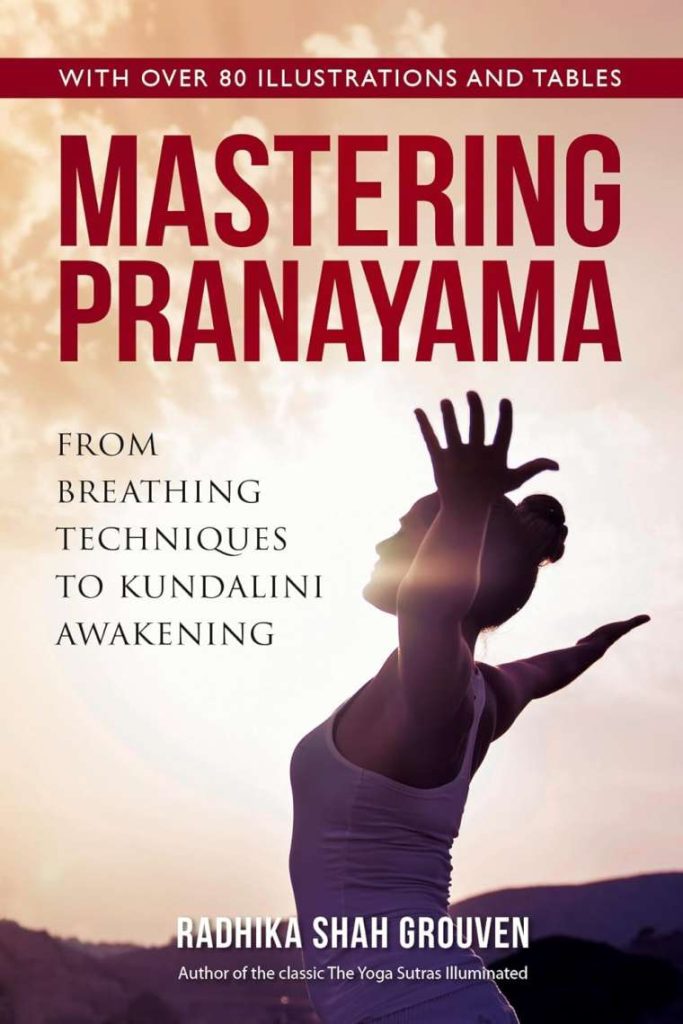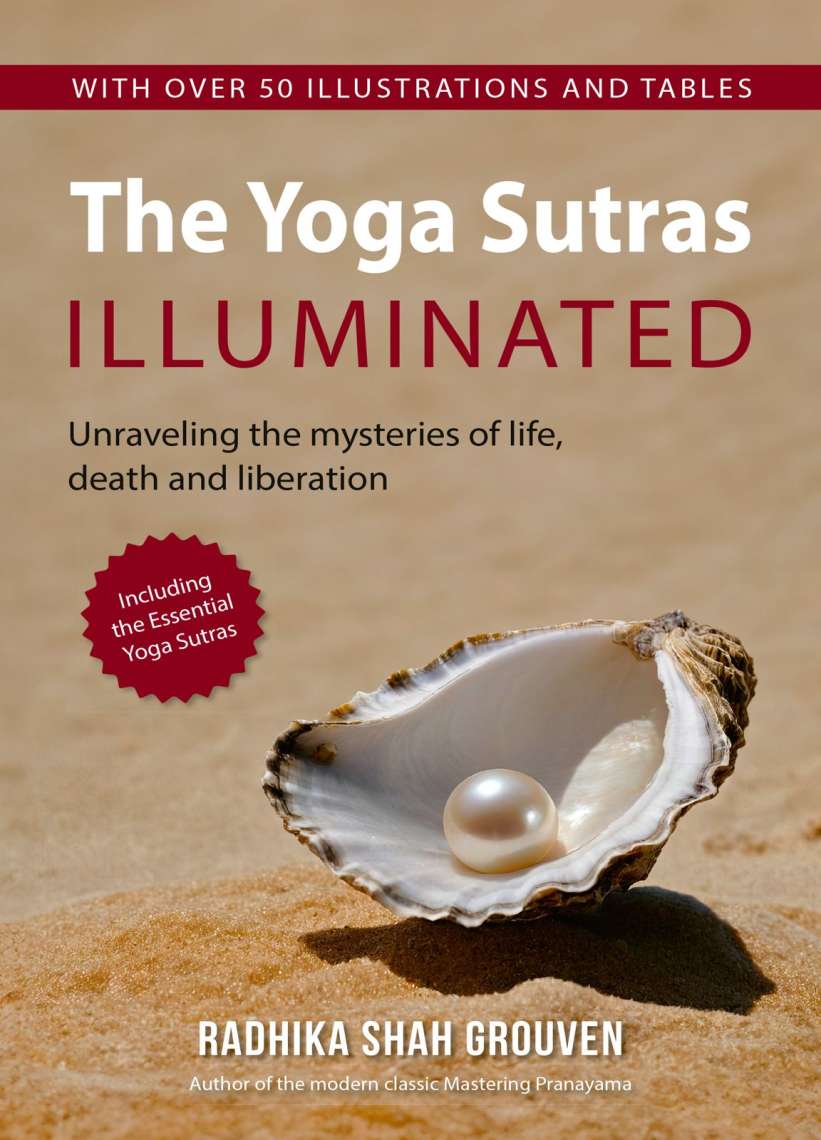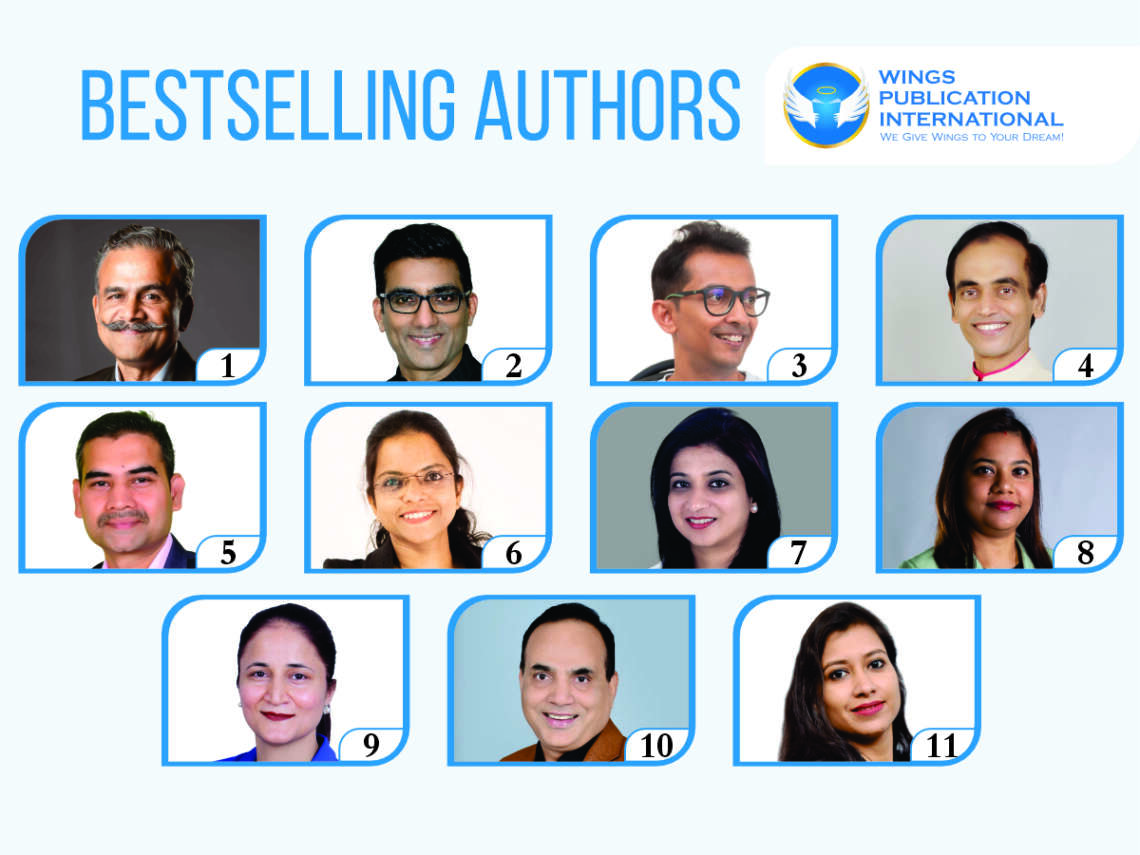Radhika Shah Grouven is an expert in the field of yoga psychology and superconscious meditation.
For decades, Radhika has observed a common misconception about yoga—that it’s merely about the body. Nothing could be further from the truth. She remains one of the few adepts of superconscious meditation, who has stayed away from the crass commercialization of traditional wisdom in a world of large organizations selling a range of lifestyle products and coaches who are certified in 5 days.
An adept in the timeless Himalayan lineage of master meditators, Radhika interprets the Yoga Sutras of Patanjali for the modern student. This text, she emphasizes, is about the mind; it is neither esoteric nor otherworldly. She demonstrates that the Yoga Sutras represent an Eastern psychology from ancient times—one that delves deeper than modern sciences of the mind and extends beyond them.
In her second book, The Yoga Sutras Illuminated: Unraveling the Mysteries of Life, Death and Liberation, Radhika hopes to transform the perception of yoga and this foundational text, revealing its profound wisdom and practical approach to discerning readers.
AsianLite spoke with Radhika about the mind, its habitual patterns, and the transformative practices she advocates.
You describe the text Yoga Sutras as the psychology of its times. How does this traditional understanding of the mind differ from modern psychological approaches?
The Yoga Sutras offer a profound exploration of the mind. While they may be viewed as a form of Eastern psychology, their approach is radically different from modern psychology. Modern psychology, with its emphasis on pathology, places the therapist at the center of the process. As a result, it offers limited guidance for healthy individuals who seek transformative experiences that move beyond the ordinary boundaries of the mind.
Yoga psychology, by contrast, provides practical techniques for self-counseling and inner growth, though deeper exploration of the many layers of consciousness traditionally requires guidance from a competent teacher. Central to yogic psychology is the recognition of the mind’s malleability. Its fundamental principle is that the mind can be trained and directed toward higher states of awareness and consciousness.
Can anyone transform their mental disposition through practice? What methods do you recommend?
With proper preparation, most of us have the capacity to transform ourselves. Yet when the mind is caught in deeply ingrained pathological patterns, the effort required to gain transformative insights is far greater. A healthy, malleable mind can gradually be directed toward increasingly one-pointed states, fostering greater clarity, focus, and success. Achieving this, however, depends on following a systematic approach that uncovers and refines the many layers of the mind–body complex.
This system begins with creating a strong foundation rooted in healthy routines and lifestyle choices, including mindful dietary changes. Physical practices, pranayama and simple meditation add to the systematic approach. However, this is not where the journey ends.
For those seeking a deeper transformative experience, exploration of the unconscious layers of the mind becomes possible under the guidance of an experienced mentor.

You suggest that our habits fundamentally shape our personality. Could you elaborate on this relationship and how awareness of this process might empower personal transformation?
The habits I am referring to are not simply daily routines, but patterns of the mind. These mental habits are often formed in the earliest years of life, when as infants and children we are not yet capable of consciously processing our thoughts. Instead, the child reacts to experiences and suggestions, and over time these repeated reactions solidify into patterns of behavior.
For example, a child who struggles to cope with the demands of modern schooling may begin to condemn itself, withdrawing and becoming dull. This self-deprecating response, left unexamined, can harden into a personality trait. Later in adulthood, when faced with challenges at work or in relationships, that same individual may again fall into despondency.
The good news is that as adults, we have the ability to consciously reshape these patterns. By choosing to approach challenges with awareness—and by cultivating awareness through sustained practice—we can gradually counter negative tendencies of the mind. This process of self-counseling, applied with patience and persistence, becomes both transformative and deeply empowering.
What do you consider the most dangerous or counterproductive approach to understanding and managing the mind and our emotions?
Suppression creates a divide within the mind, giving rise to deep-seated inner conflict. When the mind is at war with itself, it manifests as disease—a fundamental lack of ease. Negative emotions that are not expressed or processed in a healthy, constructive way become destructive to both mind and body. In fact, many chronic illnesses can be traced back to the unconscious suppression of trauma, fears, and unfulfilled desires.
The constant pressure to perform at the highest level, to cheer ourselves on relentlessly, and to push beyond our limits often reflects a profound lack of self-love. We pursue impossible standards of perfection in every area of life. We don’t allow ourselves to feel sad or angry, to admit doubts, or to acknowledge anxiety about the future. Instead, we hide behind a mask of perfection, never permitting ourselves to be anything less.
The relentless pursuit of perfection is perhaps the single most destructive approach to managing the mind and emotions.
You’ve outlined various aspects of the mind in your teachings. How can we coordinate these different aspects to achieve meaningful goals in life?
I see the mind as a team, much like players in team sports such as soccer, basketball or hockey, each contributing to achieve a shared objective. Just as each player on a team has a distinct role—striker, defender, goalkeeper—and works in harmony with others to achieve the ultimate goal of winning, the various faculties of the mind can function together to accomplish their objectives. These objectives might range from finding a life partner, securing a promotion at work, or purchasing a family home.
When the mind’s different aspects operate in coordination, guided by self-awareness and conscious direction, they become a powerful force for achieving meaningful goals. The key lies in understanding and training each “player” of the mind, ensuring that impulses, emotions, reasoning and desires are aligned and working in harmony toward the life we wish to design for ourselves.
Loneliness affects people of all ages, particularly in urban environments. What insights from the Yoga Sutras might help address this growing epidemic?
Loneliness is, in many ways, the primal disease of the human condition. At its core, it arises not merely from the absence of others, but from being disconnected from the deeper aspects of our own minds—our thoughts, emotions and inner awareness. When we are cut off from ourselves, we feel restless, uneasy, and perpetually seeking fulfillment outside.
The key to overcoming this fundamental loneliness lies in cultivating a true relationship with your own mind. By turning inward, observing your thoughts without judgment, and engaging with your inner world consciously, you can transform your mind into your most loyal companion. When your mind becomes your best friend, you carry with you a source of trust, insight, and contentment—and in that state, you are never truly alone.
In an age of constant digital distraction—from social media to streaming platforms—what guidance do the Yoga Sutras offer for maintaining focus and mental clarity?
Protecting the mind from distractions and allowing it to focus on a single object can be deeply restorative.
In practical terms, this begins with avoiding multitasking. Focusing on one task at a time helps calm and soothe the mind. Maintaining a consistent sleep schedule—waking up and going to bed at the same time—supports the restorative sleep our bodies and minds require. A simple ritual such as turning off mobile devices and screens at least two hours before bedtime further improves sleep quality.
This can help us enjoy the advantages of modern life without letting it overwhelm our minds.
Attachment and loss are universal human experiences. How can we navigate the grief of losing loved ones, process breakups, or reinvent ourselves when children leave the nest?
Forging relationships is at the heart of what life is truly about. Yet it is often a double-edged sword. While we love our partners and family deeply, they can also be the source of our greatest pain.
This very pain can, however, become a catalyst for deeper inquiry—into the very nature of the mind and our relationship with the world around us. It can lead to profound insights, revealing that everything is in constant flux and that, no matter how tightly we try to hold on, nothing remains the same. Indeed, life would be dull if everything stayed unchanged.
Learning to navigate these inevitable changes with awareness, and cultivating a sense of non-attachment, can transform our experience. It allows us to engage fully with life, embrace its impermanence, and find a profound sense of satisfaction and freedom.
Effective decision-making is crucial in all aspects of life. What insights from the Yoga Sutras can illuminate this process and help us make more skillful choices?
We live in an age of overwhelming choices. We are flooded with an abundance of options whether selecting our evening entertainment, shopping at the supermarket or even selecting a potential partner on a dating app.
A great lesson that the Yoga Sutras offers is the ability to let go in order to choose. Whether you make the life changing decision of choosing a career or a life partner, you must let go the alternative career options or love interests. Letting go these gracefully will save you from years of regret and misery. It is the law of life: you cannot move forward without leaving something behind.
Aging and death are inevitable yet often avoided topics. What wisdom can you share about approaching these realities with grace and understanding?
The human mind is obsessed with loss and gain. As we grow older it is harder for us to come to terms with the loss of youth, beauty and all the other qualities that came so easily earlier. Preoccupied with this loss we fail to see the gifts of maturity and experience. The most essential lesson we can learn is the graceful acceptance that change is the natural order of the body, mind and all of life.
Death is a separation from all that which is familiar to us. Death is not painful. However, the thought of losing everything we cherish—family, friends and possessions—is terribly painful. The fears of loss along with regrets and unfulfilled desires make the suffering unbearable.

If you train your mind to enjoy all things new and unfamiliar you will lead a life of curiosity and adventure. Though you may still find the thought of death frightening, you will approach it more consciously—with greater courage and resilience.
What would you say is the ultimate purpose of life? Should we prioritize expansion of consciousness or the pursuit of happiness?
The pursuit of happiness has never recommended as the goal of life by spiritual traditions. Happiness is ephemeral and fleeting. Life will inevitably bring along its challenges, doubts, and regrets. Everyone without exception will experience at least one life crisis. Even the most fortunate among us will encounter times of grief and unhappiness.
Instead, the attainment of wisdom has long been regarded as the ultimate goal of life. Wisdom does not automatically arise from the passage of time or accumulation of experiences.There are many who, even in the twilight of life, remain bitter, dissatisfied, and unfulfilled. The wisdom that the adepts and sages of all spiritual traditions speak of is true self-knowledge and the ability to navigate the vicissitudes of life.
This kind of wisdom emerges only through expanding self-awareness and learning to coordinate, regulate, and harness the latent potentials of the mind.
The Yoga Sutras Illuminated by Radhika Shah Grouven is available on
India Store: Amazon: https://www.amazon.in/stores/Radhika-Shah-Grouven/author/B07C864XPL
UK Store: https://www.amazon.co.uk/stores/Radhika-Shah-Grouven/author/B07C864XPL









